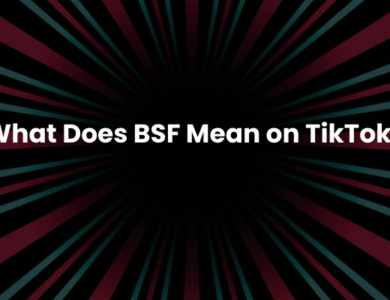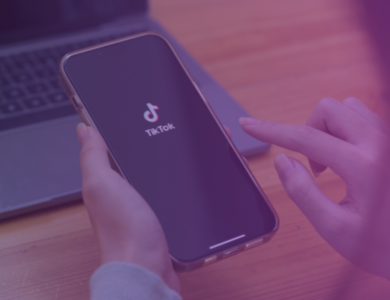
In March 2024, TikTok found itself at the crossroads of a significant legislative challenge in the United States. The House of Representatives cast an overwhelming vote to approve a measure potentially banning the platform or compelling its sale, marking the most formidable threat to the app’s operation on American soil. This decision, backed by a wide bipartisan majority including influential figures like House Speaker Mike Johnson and former House Speaker Nancy Pelosi, highlights the deep-seated concerns regarding the app’s Chinese ownership and the implications for national security. As the bill transitions to the Senate, the future of TikTok—a platform beloved by millions for its short-form video content—hangs in the balance. This juncture underscores the complexities of navigating the intersections between technology, governance, and the safeguarding of personal data, setting the stage for a contentious debate on the national stage.

Contents
Background
TikTok, with its dynamic short video content, has captivated a global audience, cementing its position as a staple in the digital diet of approximately 170 million American users. This immense popularity, however, is shadowed by concerns stemming from its ownership by ByteDance, a Chinese company, raising alarms over potential national security risks.
The bipartisan vote in the House, which saw 352 members in favor versus 65 against, with one abstention, underscores the gravity of these concerns. This legislative move to either force a divestiture of TikTok’s U.S. operations or outright ban the platform illustrates the escalating tensions between technological innovation and geopolitical considerations.
The bill’s passage through the House represents a critical step in a broader dialogue about the balance between safeguarding user data and ensuring freedom of expression. As it proceeds to the Senate, the narrative surrounding TikTok’s future in the U.S. encapsulates a broader debate on the influence of foreign ownership on American digital platforms. The bipartisan nature of the support for the measure reflects a rare consensus in an often-divided Congress, highlighting the unified apprehension regarding the implications of TikTok’s data privacy practices and its potential for foreign influence.
The Core Issues
At the heart of the controversy surrounding TikTok is the apprehension over ByteDance, its Chinese parent company, potentially sharing sensitive user data with the Chinese government. This fear stems from broader tensions between the U.S. and China over technology and security, encapsulating worries that the personal information of the 170 million Americans using TikTok could be exploited for espionage or influence operations. The U.S. officials’ stance is clear: the possibility that ByteDance could be compelled to hand over data under Chinese law poses a significant threat to national security.
Counterarguments by critics of the ban emphasize free speech and the steps TikTok has taken to mitigate these risks, including storing American users’ data on U.S. soil. However, these measures have not fully assuaged concerns, as the overarching fear remains that, if pressed by Chinese authorities, ByteDance might not withstand the pressure to comply.
This standoff reflects a broader global conversation about the intersection of technology, privacy, and national security. The debate is not just about TikTok’s operational practices but also about the precedent it sets for handling foreign ownership of platforms deeply embedded in the social fabric of nations. As such, the core issues extend beyond TikTok, challenging policymakers to navigate the thin line between safeguarding national security and preserving the open, global internet.
Senate and Presidential Perspectives
The bill’s journey to the Senate introduces a new level of uncertainty regarding TikTok’s fate in the U.S. Senate Majority Leader Chuck Schumer’s reluctance to commit to a vote timeline mirrors the legislative body’s complexity and the diverse opinions within. President Joe Biden, on the other hand, has signaled a willingness to endorse the bill should it successfully navigate the Senate’s hurdles, aligning the executive branch’s stance with concerns over national security.
This scenario is further complicated by voices like Senator Maria Cantwell, D-Wash., chair of the Senate Commerce Committee, who seeks a balanced approach. Cantwell’s emphasis on finding a path that is both constitutional and protective of civil liberties underscores the delicate balance lawmakers must strike. This includes considering the bill’s implications for free speech, data privacy, and the broader digital ecosystem.

The administration’s urging for swift Senate action, articulated by White House press secretary Karine Jean-Pierre, underscores the urgency perceived by the executive branch. This call to action reflects a broader recognition of the stakes involved, not just for TikTok but for the precedent it sets regarding foreign ownership of American tech platforms. The Senate’s decision will, therefore, be a significant determinant of the future landscape of digital governance and U.S.-China tech relations.
Public Opinion and TikTok’s Response
Public opinion on the potential TikTok ban in the United States is deeply divided, reflecting the complexity of the issue at hand. According to a recent poll from the Associated Press and NORC Center for Public Affairs Research, about 31% of U.S. adults support a nationwide ban, whereas 35% stand opposed. This division becomes even more pronounced among TikTok’s daily users, with 73% expressing opposition to a ban, highlighting the platform’s importance in their digital lives and the potential impact on their freedom of expression and access to information.
In response to the legislative actions, TikTok has vocally criticized the process and the potential ban, framing it as an infringement on the digital liberties of Americans. The company emphasizes the secretive nature of the legislative process and the rushed manner in which the bill was advanced, suggesting that these actions were taken to expediently impose a ban without adequate consideration of the consequences.
TikTok’s statement also points to the broader implications of a ban, highlighting the potential harm to the economy, the livelihoods of 7 million small businesses that leverage the platform, and the personal expression of the 170 million Americans who use TikTok. This stark opposition from both the public and the platform itself underscores the contentious nature of the debate, reflecting broader concerns about digital freedom, privacy, and national security.




